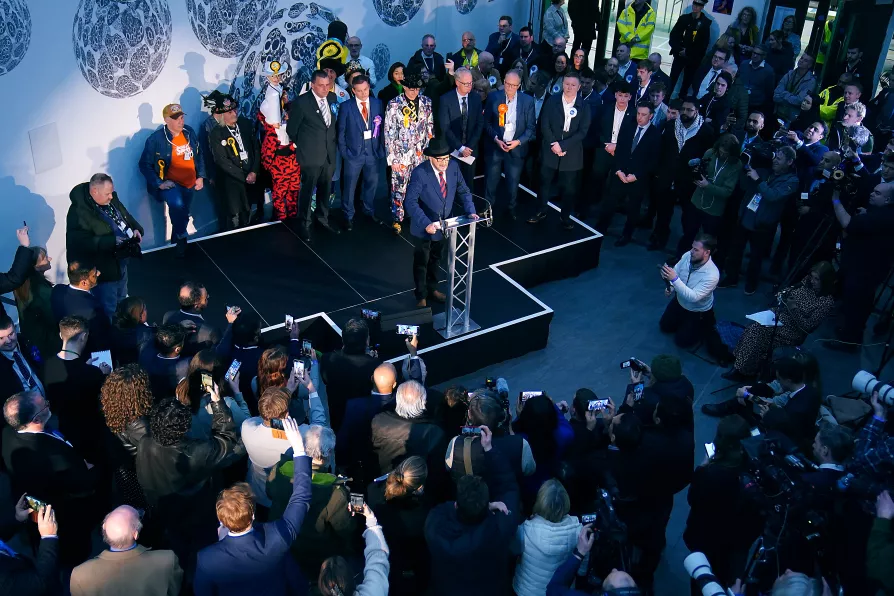
 George Galloway gives a speech after being declared winner Rochdale Leisure Centre in the Rochdale by-election, which was triggered after the death of Labour MP Sir Tony Lloyd, February 29, 2024
George Galloway gives a speech after being declared winner Rochdale Leisure Centre in the Rochdale by-election, which was triggered after the death of Labour MP Sir Tony Lloyd, February 29, 2024
BY-ELECTION results are not necessarily the most perfect indicators of likely general election results, but George Galloway’s stunning victory in the Rochdale contest highlights factors which have an important national significance.
As the victorious candidate said, it is a victory for the Palestinian people and for Gaza. But it is also a powerful blow against the consensus politics of the Establishment “parties of government.” It reflects the deep crisis of legitimacy that decades of neoliberalism, austerity and war have produced.
As the mainstream media suppressed coverage of the Rochdale campaign, local issues joined with a heightened sensitivity to global politics to produce a thoroughgoing rejection of Westminster-style politics.

Starmer sabotaged Labour with his second referendum campaign, mobilising a liberal backlash that sincerely felt progressive ideals were at stake — but the EU was then and is now an entity Britain should have nothing to do with, explains NICK WRIGHT

Deep disillusionment with the Westminster cross-party consensus means rupture with the status quo is on the cards – bringing not only opportunities but also dangers, says NICK WRIGHT

With Reform UK surging and Labour determined not to offer anything different from the status quo, a clear opportunity opens for the left, argues CLAUDIA WEBBE











